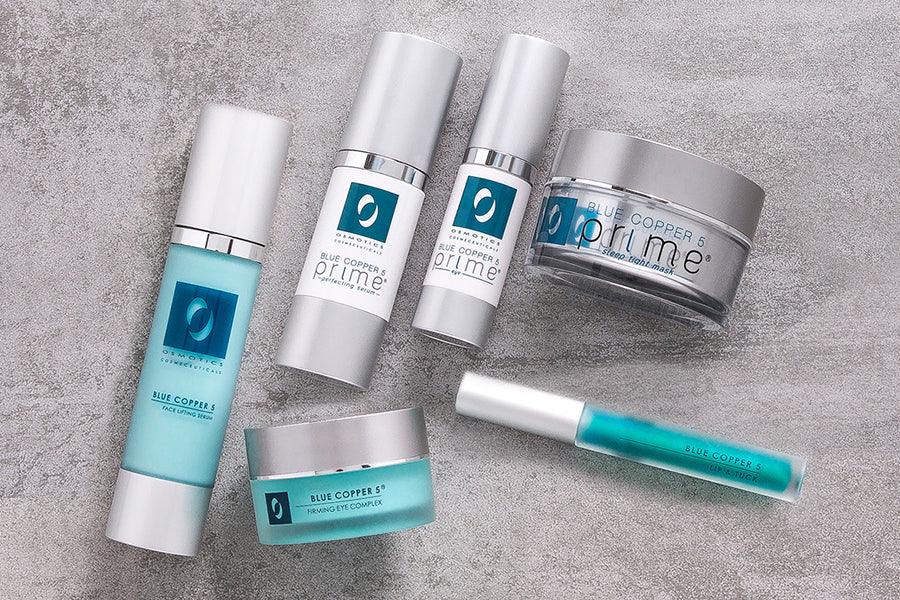
Do anti-aging creams work or are they too good to be true?
Share
We all want to be remembered with a beautiful and elegant photo that captures our soul. Nonetheless, the researchers were astounded by how many more people are now likely to believe that their defining shot was taken years ago. Despite the fact that we are living longer and longer lives, it is apparent that we are dissatisfied with the symptoms of ageing. People don't mind that wrinkle are simply markers of past grins. Anti-aging beauty products have become a multibillion-dollar industry in the United States alone, and sales are expected to rise further as more baby boomers seek to eliminate fine lines and wrinkles.
You might have heard people saying Anti-aging creams are one of the best creams that ever exist. But do they really work? If so, how do they purify the skin and remove the wrinkles on your skin? Which are the best anti-aging creams on the market? And does it contain ingredients that do cause harm to the skin? This article will help you in getting detailed information on Anti-aging creams.
Related Topic : Everything you need to know about Anti-aging Masks
Let's look at the various qualities of anti-aging creams and explain why they work:
Hydration Moisturizers fill up the skin, making wrinkles look more petite. Glycerine and hyaluronic acid are two components to look for since they attract and bind water to the upper layers of skin.
Why it works: Hydration is essential for having healthy-looking skin. When our skin is adequately hydrated, it not only protects us from external aggressors better, but it also seems plumper and fuller, making fine lines and wrinkles appear smaller.
Antioxidants Antioxidant creams assist in the fight against surface free radicals, which can promote premature ageing. Look for solutions that contain well-known antioxidants such as vitamin C and E and green tea extract.
Why It Works: Surface free radicals may harm DNA, cells, and proteins (including collagen and elastin, which are crucial skin building blocks), leading to wrinkles when these building blocks deteriorate or are eliminated. Antioxidants function to prevent these highly reactive components from generating damage, which means they aid in preventing wrinkle creation.
Exfoliation Most women associate exfoliation with cleaning scrubs, but chemical exfoliants can have a comparable effect. These act by dissolving the connections between the skin's top surface cells (example: alpha hydroxy acids and beta hydroxy acids). Look for compounds including Niacinamide, which helps by hastening the skin's rejuvenation process (exfoliation). Niacinamide has been demonstrated to diminish the appearance of fine lines and wrinkles, uneven texture and hyperpigmentation, minimize the appearance of pores, spots, and blotchiness, and brighten skin sallowness.
Why It Works: When dead skin cells are removed, the skin beneath is revealed, which is brighter and smoother. As a result, skin tone will become more even and radiant with repeated usage.
Sun-protection SPF creams with broad-spectrum protection helps guard against the sun's UVA/UVB radiation, a primary cause of premature ageing.
Why it works: Using a moisturizer with broad-spectrum protection, including Sun Protection Factor 15, regularly helps protect against sun damage all year long and combats the major cause of premature ageing — the sun is responsible for 80% of ageing. Wearing sunglasses, long-sleeved clothing, and avoiding the sun between 10 and 2 p.m. are all excellent ways to protect yourself from the sun.
Peptides
Peptides, which include pentapeptides and copper peptides, are proteins that stimulate collagen formation and aid in wound healing. They can also assist in decreasing the appearance of wrinkles.
Hyaluronic Acid
Moisturization is enhanced by hyaluronic acid. As you get older, your skin begins to lose moisture, making wrinkles more prominent. Hyaluronic acid absorbs moisture, which helps to fill up the face and conceal wrinkles.
According to 2008 research conducted by the University of Michigan, topical retinol application was one of only three proven therapies for ageing skin, the other two being carbon dioxide laser treatments and hyaluronic acid injections [source: Singer]. However, don't confuse hyaluronic acid injections with the hyaluronic acid cream stated above; research shows the most effective substance when injected under the skin. Indeed, many of the chemicals in anti-aging lotions only function when applied beneath the skin rather than on top. In a 2006 interview with the New York Times, one dermatologist equated using an anti-aging cream to sprinkling blood on the top of a patient who requires a blood transfusion.
Which anti-aging cream should I use?
Our Blue Copper 5 Anti-Aging Cream helps overnight provide optimal results and penetration while your skin is resting. Substantial concentrations of (20% hyaluronic acid) stimulate deep hydration, relieving tension and dryness, and plumping fine lines and wrinkles. You'll also notice a lifting and tightening effect after treatment.
Conclusion
Whatever your aim for a healthier complexion is, there are several alternatives available to you! Just be sure to follow the directions to ensure that you use these products appropriately. Apart from creams, we have numerous anti-aging products that can help to look younger. Check it out now!
